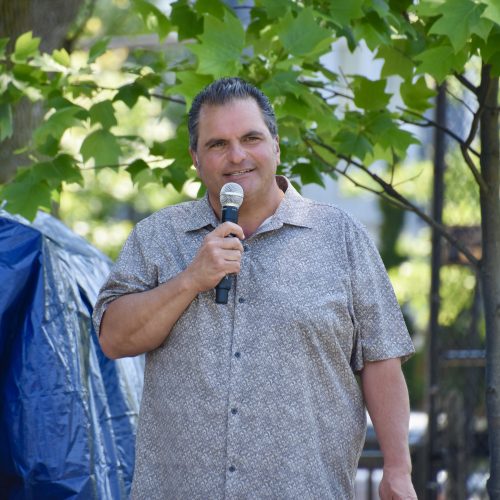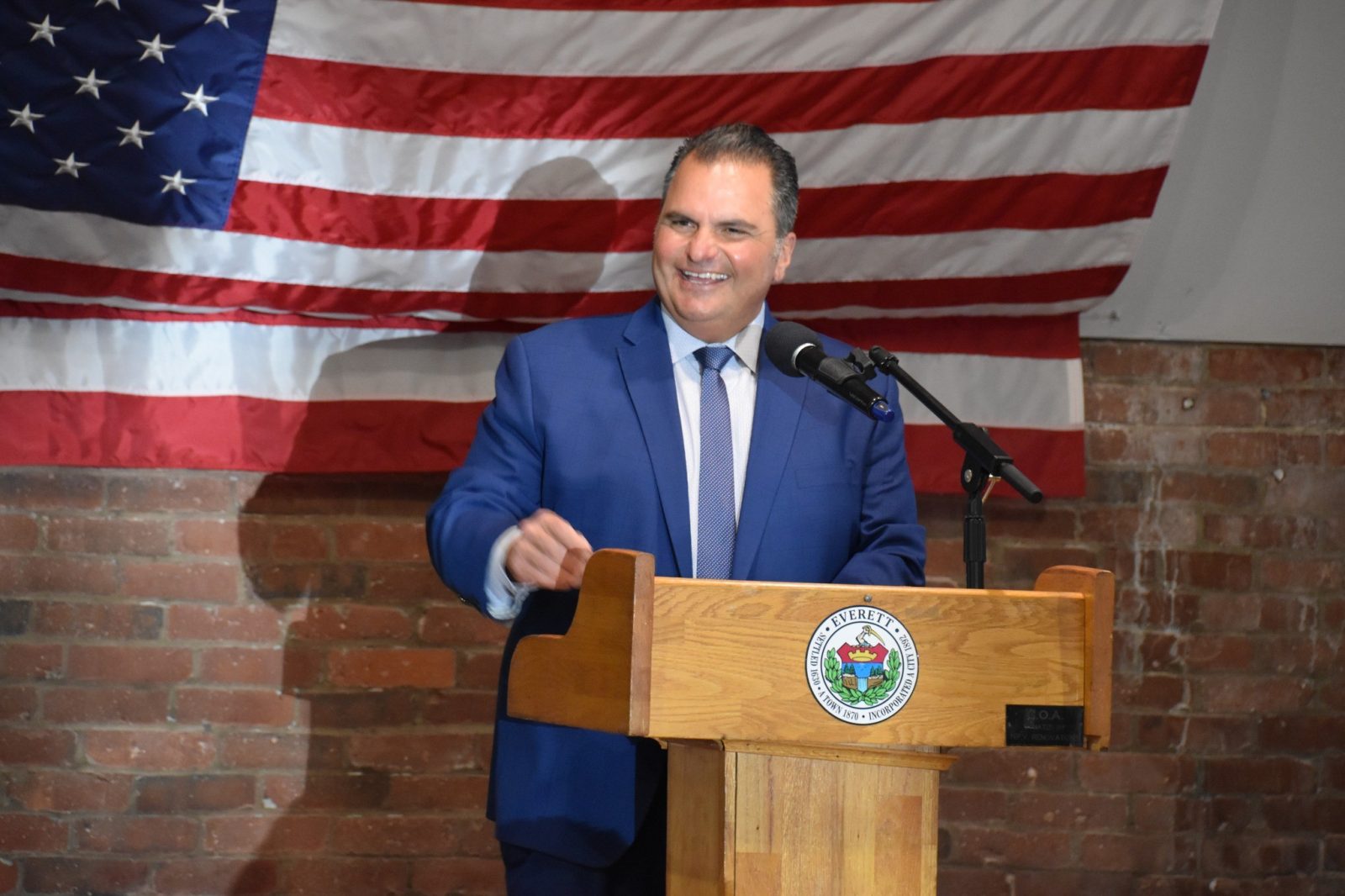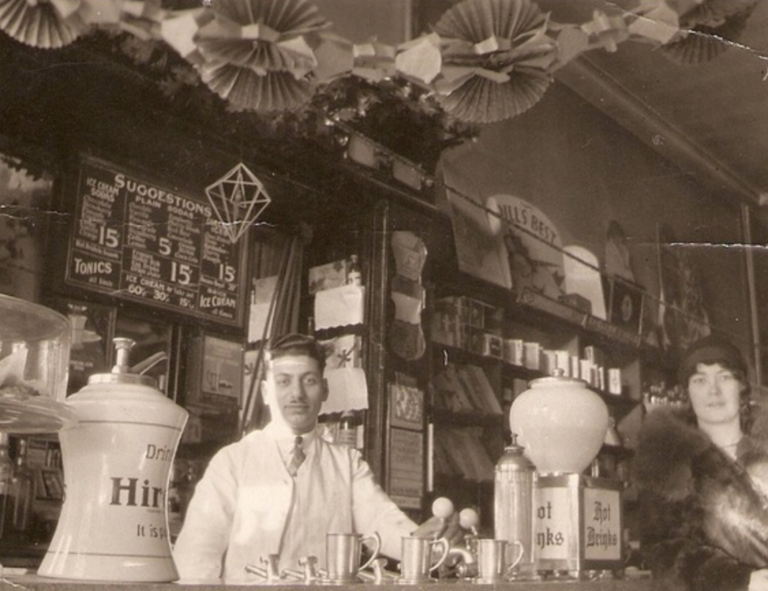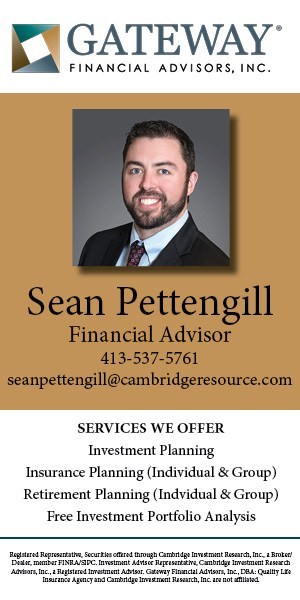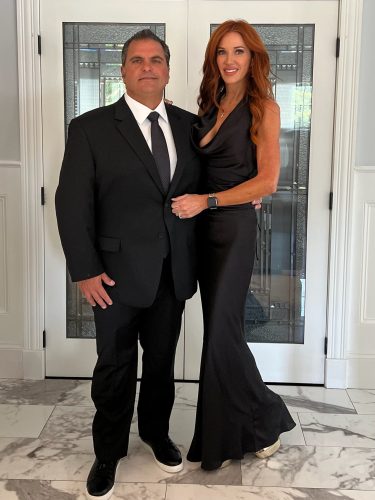
ON A SUMMER morning in Everett, Massachusetts, Mayor Carlo DeMaria stands overlooking the Mystic River waterfront, where the gleaming towers of Encore Boston Harbor rise against the Boston skyline. But when he looks at this transformed landscape, he doesn’t see just the $2.4 billion resort that put his city on the map as a national destination. Instead, his mind is already focused on the next project, the next opportunity to lift up his community.
“I don’t really look at the successes,” DeMaria admits with characteristic directness. “I’m always looking at what I can do to make things better.”
It’s this relentless forward momentum that has defined DeMaria’s remarkable 18-year tenure as mayor of this working-class city just across the river from Boston. From his unlikely start as a 20-year-old city councilor to becoming one of Massachusetts’ most recognizable municipal leaders, DeMaria has transformed Everett from a struggling gateway city into a model of urban renewal and community investment.
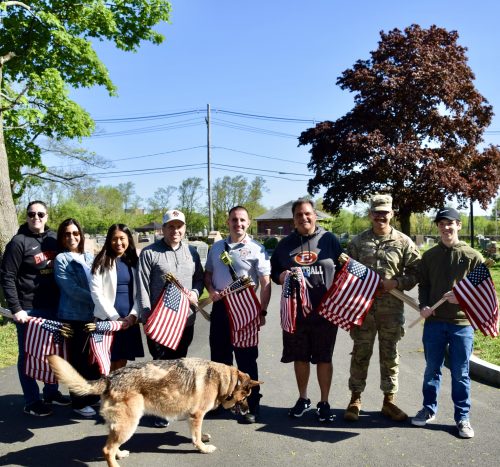
From Paper Boy to Public Servant
The story of Carlo DeMaria’s political career begins not in the halls of power, but on the streets of Everett delivering newspapers. As a criminal justice and political science major at Northeastern University, the young DeMaria was looking for a co-op placement when a neighbor changed the trajectory of his life.
“He was a World War II and Korean War vet. I was his paper boy for 17 years,” DeMaria recalls his childhood neighbor, Jack. “He said, ‘Listen, the whole neighborhood wants you to run for city council.'”
That’s when DeMaria approached his advisors at Northeastern with an unconventional proposal. “I said, ‘Can I run for city council? Would that be a co-op?’ And they actually agreed and said yes.”

At 20 years old, DeMaria won his first election, representing a community that had watched him grow up delivering their morning papers. Even then, he could see the challenges facing Everett – a city struggling with contaminated brownfield sites, aging infrastructure, and limited economic opportunities.
“The city was kind of just teeter-tottering,” he remembers. “Gateway city, environmental justice community, filled with dirty, contaminated sites. The city was at a crossroads and needed to find a way to move forward.”
After serving as a councilor and alderman-at-large, DeMaria made a decisive choice 18 years ago: run for mayor with an all-or-nothing mentality. “I said I’m going to run for mayor. I win, great. I lose, I’m done.” He knew that the future of his hometown was more important and worth risking his own political career.
He won, and Everett hasn’t been the same since.
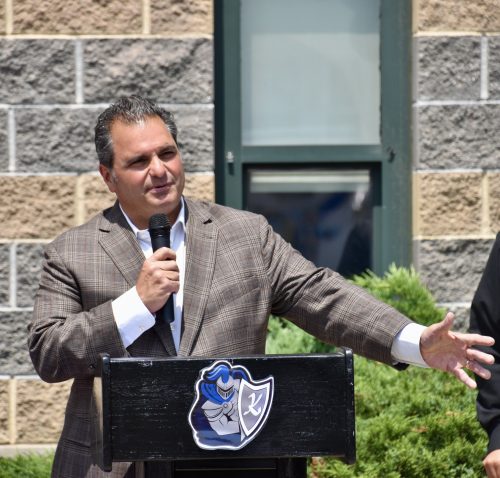
Building the Foundation
DeMaria’s approach to governing has been methodical and comprehensive, starting with the basics that many take for granted. Over nearly two decades, his administration has invested millions in fundamental infrastructure – water systems, sewer and drainage systems, streets, sidewalks, parks, and public transportation improvements.
“We just made a commitment to invest in public infrastructure,” DeMaria explains. The city modernized all its buildings, converted to LED lighting throughout the municipality, and tackled the environmental challenges that had long plagued the community.
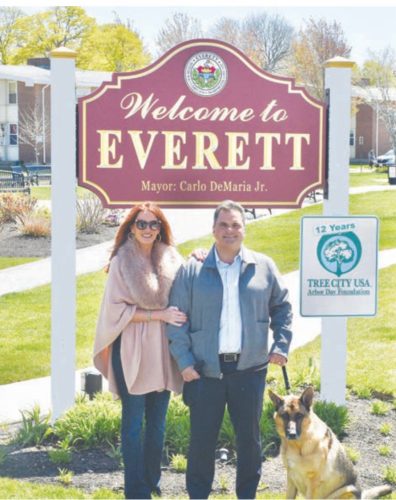
Perhaps most importantly, DeMaria focused on the contaminated brownfield sites that had cut Everett off from its greatest natural asset – the Mystic River waterfront. Working with state officials, he developed an Urban Renewal Plan that would eventually attract the attention of major developers.
The transformation became visible when Wynn Resorts (now Encore Boston Harbor) chose the former Monsanto chemical site for their $2.4 billion resort and casino. The project, which opened in 2019, represented the largest private investment in Massachusetts history and brought thousands of jobs to the region.
“We worked out getting that redeveloped, and that’s been the catalyst for redevelopment in the area,” DeMaria notes.The success has attracted additional hotel developments and helped clean up other contaminated sites along the waterfront.
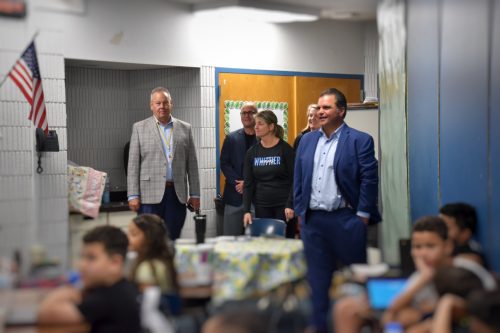
A Vision for Tomorrow
As DeMaria prepares for another potential term, his priorities reflect the same systematic thinking that has driven his previous successes. At the top of his agenda is public transportation – a cornerstone of his vision for sustainable urban development.
“Public transit really is the key,” he emphasizes. The city has secured $30 million from the MBTA to extend the Silver Line and build out a new commuter rail station. “Our bus lanes will connect to this commuter rail station. People will be able to go on a bus lane uninterrupted, bike, train, traffic down to the commuter rail, head over to North Station.”
This transportation infrastructure is crucial to DeMaria’s housing strategy. Rather than simply allowing unlimited development, he’s pushing for high-density housing with minimal parking requirements near transit hubs.
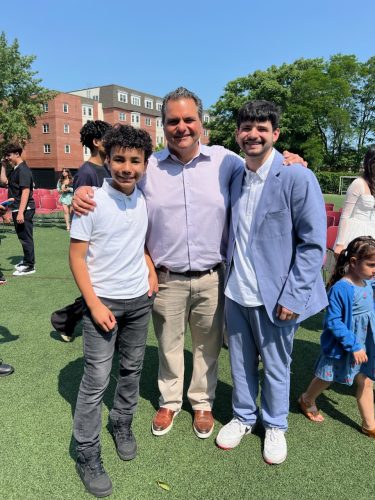
“Don’t give them any parking spaces. That just creates more traffic congestion,” he argues. “Build housing, but without parking. That way, they allow them to build more housing, which effectuates supply and demand. You put a lot of supply on the market and you meet the demand, then you’ll see rents going down.”
It’s a progressive approach that challenges conventional wisdom about development, but DeMaria backs it up with economic logic. “Think about how much it costs to own a car – $400 a month, right? It’ll cost you $10,000 a year for a car on the short end. Imagine if you can put that towards your housing. You just reduced your cost of housing.”
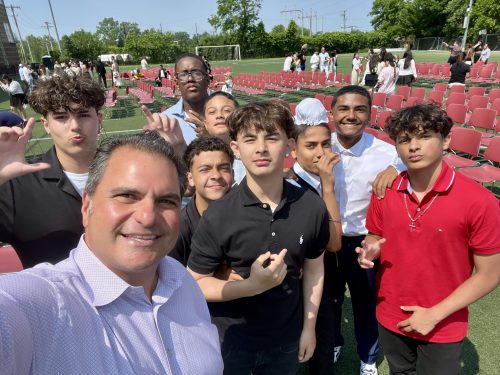
Caring for Community
While major development projects grab headlines, DeMaria’s proudest achievements often involve the residents who need the most support. He’s particularly focused on housing for seniors and veterans, recognizing that longtime residents are being priced out by rising rents.
“I’m seeing a lot of our seniors who are struggling, who can’t afford the prices today,” he explains. “Senior citizens have been living there forever, paying $800, now their rents are going up by 300%, and they’re getting bounced out of the city.”
His response has been to develop affordable housing specifically targeted at these vulnerable populations. Projects like the conversion of the old St. Teresa church and new construction on the parkway will provide housing for people making $20,000 to $40,000 annually.
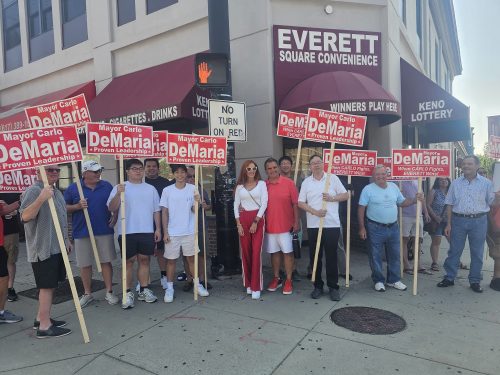
The city’s senior center has become a regional destination, drawing elderly residents from across the Greater Boston area for daily programs including Zumba, yoga, and communal meals. Even more remarkably, DeMaria has continued a pandemic-era program delivering 600 lunches daily to seniors’ homes.
“I still deliver 600 lunches every day to seniors’ houses since the pandemic,” he says, using federal funds to address food insecurity among the city’s most vulnerable residents.
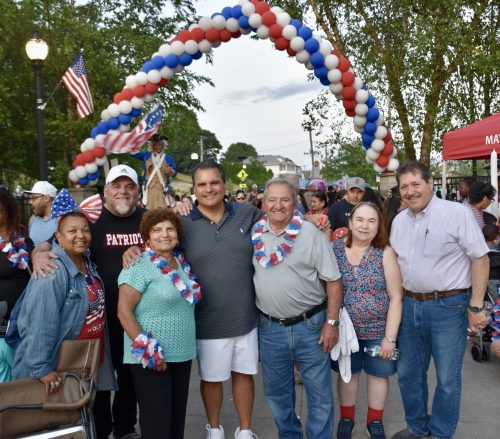
Education and Opportunity
One of DeMaria’s most ambitious plans involves completely reimagining education in Everett. The city has received approval to build a new high school, but DeMaria envisions something far more transformative than a traditional academic institution.
“What I’m really looking at is building a full vocational” program, he explains. “A lot of the kids that live in Everett, kids like myself, first generation, or maybe even born in a different country – college isn’t for everybody.”
His critique of higher education is pointed and personal. “College tuition is out of control unless you’re getting a license, like nursing or teaching. I got a criminal justice degree – I don’t need that to be the mayor.”
Instead, DeMaria wants to provide students with practical skills that lead directly to employment – plumbing, electrical work, automotive repair, or emerging fields like climate technology and life sciences. It’s a philosophy that reflects his own background and his understanding of what his community needs.
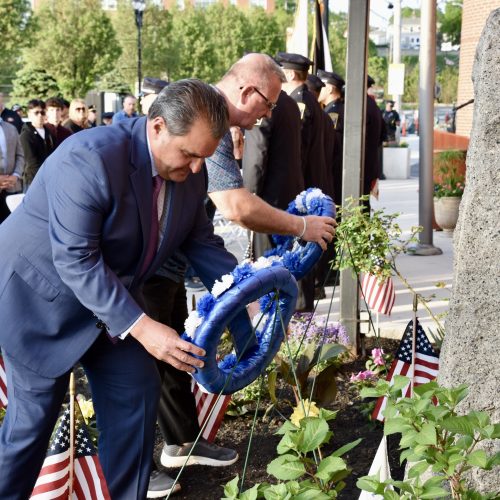
The Stadium Controversy and Community Vision
Perhaps no project better illustrates DeMaria’s approach to development than the proposed soccer stadium for the New England Revolution. The Kraft family’s plan to build a state-of-the-art facility on the site of a former power plant has generated both excitement and concern among residents.
DeMaria’s response has been characteristically thorough, addressing transportation concerns head-on. “No parking, no parking at the facility – handicap spots only,” he declares. Instead, the city is creating multiple transportation options: pedestrian bridges, public transit connections, and even an underground walkway from the Encore resort.
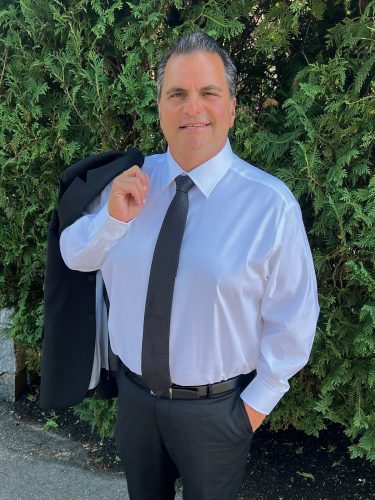
“We’re designing a walkway under from Encore, under that bridge that connects Everett to Charlestown, right over to the stadium,” he explains. The Krafts will also build a four-acre public park for the city as part of the development.
The project represents more than just a sports venue to DeMaria – it’s about environmental cleanup and economic opportunity. “Right now it’s a defunct, contaminated, blighted power plant,” he notes. “It’s going to be a stadium with close to a billion-dollar private investment, built by all union labor, tons of decent jobs.”
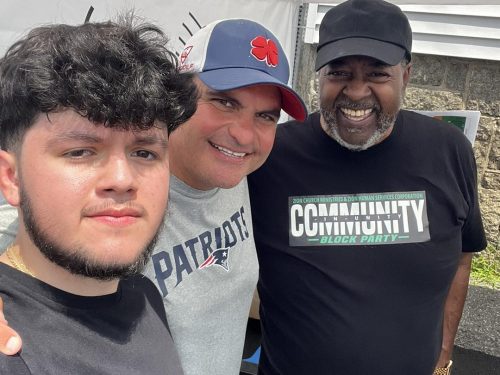
Public Safety and Quality of Life
Under DeMaria’s leadership, Everett has achieved remarkable improvements in public safety, with crime down 28% over recent years. But his approach goes beyond traditional policing to focus on community engagement and prevention.
The police department emphasizes community service and outreach work, while the fire department has expanded beyond traditional emergency response. “We have instituted our own ambulance service. We have the best response time in the state,” DeMaria reports proudly. The city maintains three firehouses and over 100 firefighters, most of whom are also trained as paramedics or EMTs.
Youth programs represent another cornerstone of DeMaria’s community safety strategy. His summer jobs program teaches young people not just work skills, but financial literacy and professional development. “We’re teaching them how to interview for jobs,” he explains, along with providing substance abuse counseling from counselors who are themselves in recovery.
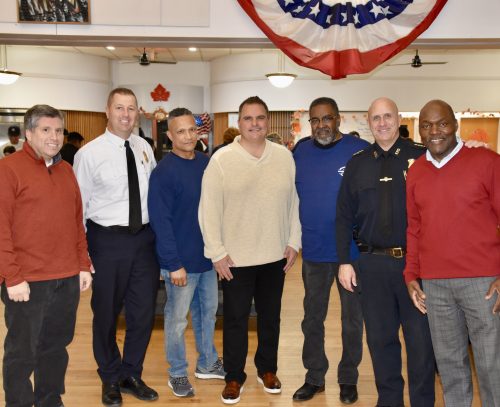
Building a Team for the Long Term
One aspect of DeMaria’s success that often goes unnoticed is his ability to build and maintain a strong administrative team. In an era of rapid political turnover, he’s created stability that allows for long-term planning and implementation.
“The thing people need to remember is the best and biggest CEOs of different companies are the ones who have been there for the longest period of time,” he argues. “It took me 18 years to put together the team I have now.”
From his chief of staff to department heads in police, fire, inspectional services, and parks, DeMaria has assembled professionals who share his long-term vision for the city. “People don’t want to just come work for a mayor if they don’t think he or she’s gonna be there, because it’s short term, right? They have to restart.”
This continuity has been crucial for implementing complex, multi-year projects and building relationships with state and federal partners. It’s also allowed DeMaria to maintain his focus on results rather than political positioning.
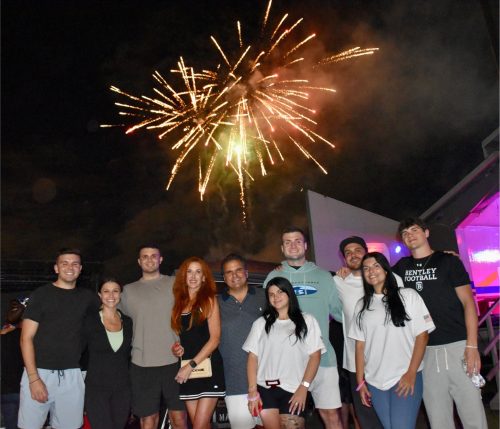
Navigating Challenges
DeMaria’s tenure hasn’t been without controversy. Like many long-serving mayors, he’s faced criticism and legal challenges over the years. Most notably, he engaged in a prolonged legal battle with a local newspaper that culminated in a $1.2 million settlement and the paper’s closure after the editor admitted under oath to fabricating stories about the mayor.
“The editor admitted under oath that he lied and fabricated all those stories,” DeMaria explains, noting that the ordeal lasted several years but ultimately vindicated his position. He’s currently considering additional legal action to further clear his name.
Despite these challenges, DeMaria maintains his focus on governance and community building. His approach to controversy is pragmatic rather than defensive – acknowledging difficulties while continuing to deliver results for residents.
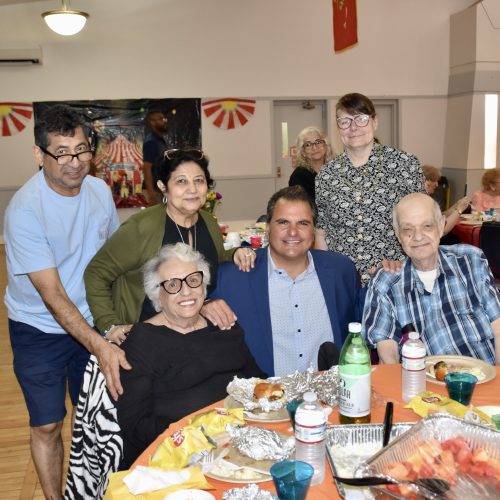
The Power of Partnership
Perhaps nowhere is DeMaria’s collaborative approach more evident than in his relationship with his wife, Stacy. While many political spouses maintain a separate profile, Stacy DeMaria has been intimately involved in many of the city’s initiatives.
“None of this really would be possible without my wife,” DeMaria acknowledges. “She’s been behind the scenes on all this stuff – the renovation of the parks, the LED lights, the improvements to the infrastructure. She reviews a lot of stuff for me and tells me about different meetings that I missed.”
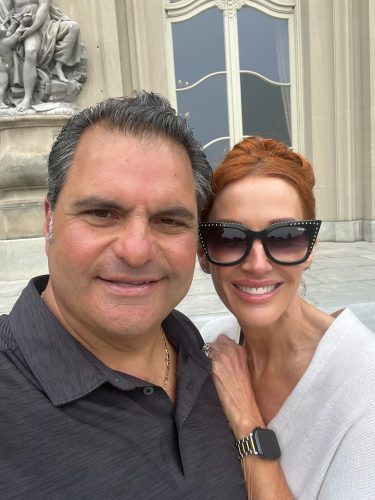
The couple, along with their three children – Carlo, Caroline, and Alexandra – represent a family deeply rooted in Everett’s community. “The five of us are like a serious pack, with our two German Shepherds,” DeMaria says with evident pride.
This family foundation has proven crucial during challenging times. “With all the things I’ve gone through, it’s made my wife and my relationship so much stronger. It’s gotten us closer, and our children – it’s crazy how close we’ve become.”
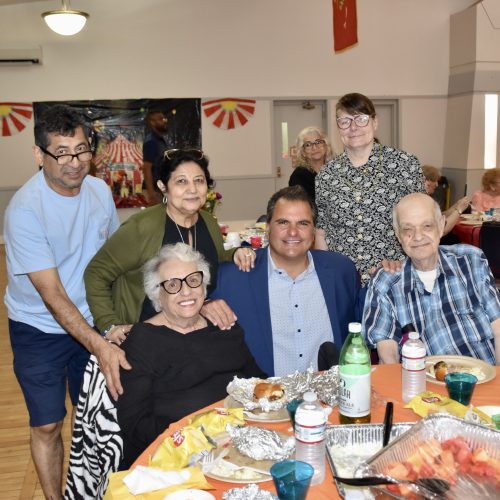
Looking Forward
As DeMaria considers his next term, his vision for Everett remains expansive. Beyond the immediate priorities of transportation, housing, and education, he sees opportunities for continued environmental cleanup and economic development along the waterfront.
“We’re looking at developing two more hotels,” he notes, along with continued redevelopment of former industrial sites. The Exxon property has been purchased by developers, and other brownfield sites offer opportunities for mixed-use development that combines housing, retail, and employment opportunities.
His goal is to create what he calls “an ecosystem” – dense, walkable neighborhoods with retail on the ground floor, connected by reliable public transit to job centers throughout the region. “If you have these housing developments with retail on the first floor, maybe you go down there and buy your peaches and your plums and your milk,” rather than relying on car-dependent shopping.
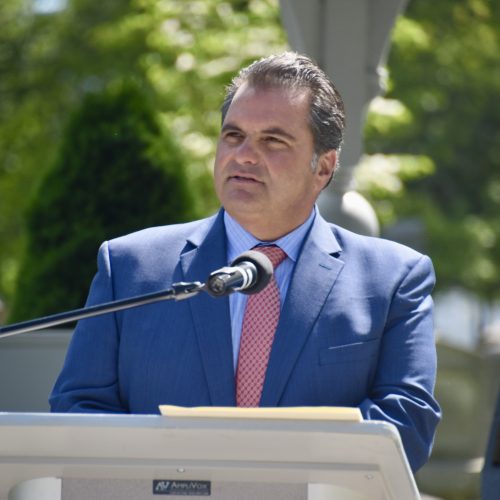
A Legacy in Progress
What strikes visitors to Everett today is not just the dramatic physical transformation, but the sense of momentum and possibility that permeates the community. From the gleaming casino resort to the bustling waterfront, from renovated parks to new affordable housing, the city reflects a comprehensive vision being systematically implemented.
But for DeMaria, the most meaningful measures of success aren’t the dramatic development projects that make headlines. They’re found in the daily lives of residents – seniors who can age in place in affordable housing, young people learning practical skills in expanded vocational programs, families enjoying improved parks and recreation facilities.
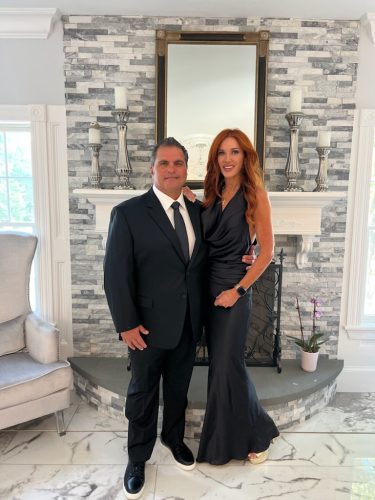
“I get excited about seeing kids working in my summer jobs program,” he explains. “I get excited seeing my substance abuse counselors who are former addicts talking to kids about staying clean and staying straight.”
It’s this focus on people rather than projects that may explain DeMaria’s longevity and effectiveness as a leader. In an era of polarized politics and short-term thinking, he’s demonstrated that patient, systematic investment in community infrastructure – physical, economic, and social – can produce remarkable transformations.
As Everett prepares for its next chapter, residents will have the opportunity to continue this trajectory or choose a different direction. For DeMaria, the choice seems clear: “I want to make a difference here, and I think I am making a difference.”

For a mayor who started as a 20-year-old paper boy with big dreams for his hometown, the transformation of Everett represents more than political success. It’s proof that with vision, persistence, and genuine commitment to community, even the most challenging urban problems can be solved.
“I’m not going anywhere,” DeMaria says simply. “My parents came from Italy in the 1960s – I’m in it for the long haul, wanting to raise the community.”
In Everett, that commitment has made all the difference.
